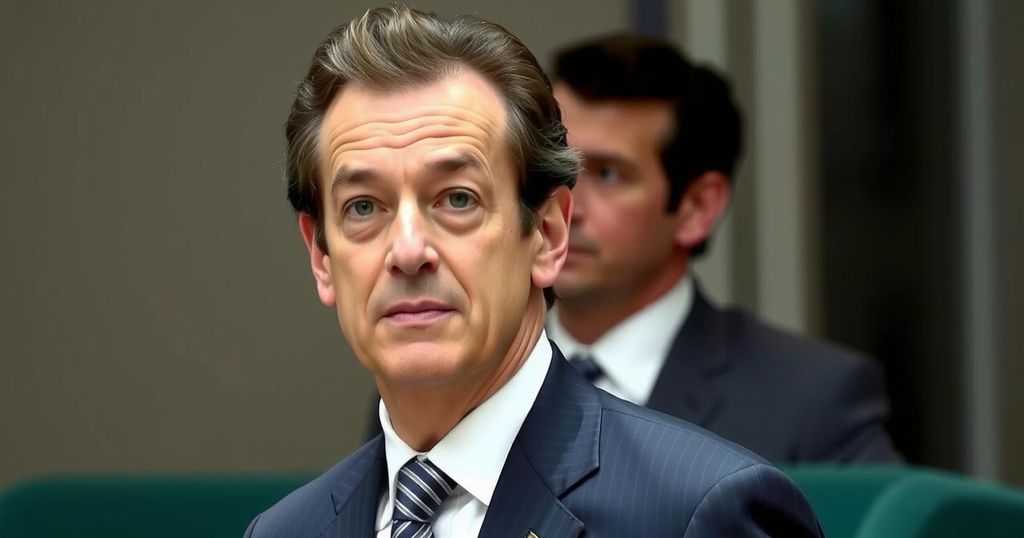Nicolas Sarkozy’s Trial Begins Over Allegations of Libyan Campaign Financing
Nicolas Sarkozy is on trial in Paris over accusations of illegal campaign financing from the Libyan government during his 2007 presidential bid. This trial, lasting approximately three months, represents a significant legal challenge for Sarkozy, who has previously faced other serious allegations, culminating in a conviction for corruption. He remains under house arrest following a prior sentence.
Former French President Nicolas Sarkozy commenced his trial in Paris on charges of illicit financing during his 2007 presidential campaign, which allegedly involved funds from the regime of Muammar el-Qaddafi in Libya. This legal proceeding, expected to last three months, poses a significant risk to Mr. Sarkozy as he confronts one of the most serious allegations against him since his presidency, which lasted from 2007 to 2012. The trial follows Mr. Sarkozy’s recent legal battles, including his conviction related to corruption and influence peddling, making him the first former French president to face actual imprisonment, albeit under house arrest with an electronic monitor.
Nicolas Sarkozy, who served as France’s president from 2007 to 2012, has faced various legal challenges after leaving office. The allegations regarding his 2007 election campaign, which include taking funds from the Libyan government, represent a particularly severe legal issue. The ongoing trial arises from broader investigations into the financing of political campaigns and corruption, reflecting significant political and ethical concerns within French politics as well as Sarkozy’s enduring influence as a prominent conservative figure.
In summary, Nicolas Sarkozy’s trial for allegations of receiving illegal campaign funds from the Libyan government underscores a critical juncture in his post-presidential career. This case is emblematic of his wider legal challenges and public scrutiny regarding the funding of political campaigns in France. As the proceedings unfold, they hold major implications not only for Sarkozy but also for the integrity of political practices in France.
Original Source: www.nytimes.com




Post Comment